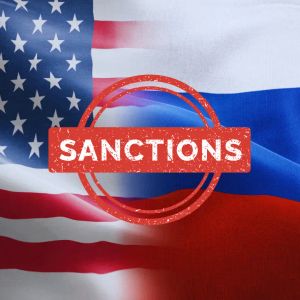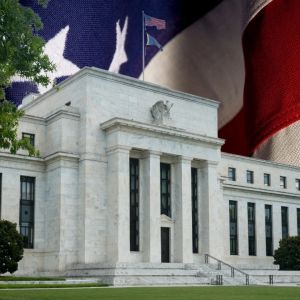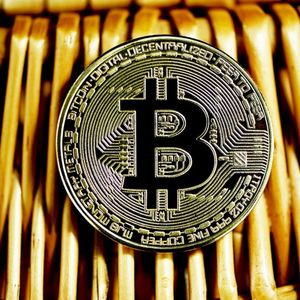President Joe Biden just dropped a sanctions bomb on Russia; one so tightly sealed it’s built to survive Donald Trump’s reign. Especially as the president-elect seems dead set on fixing his friendship with Russia’s president Vlad Putin. Now Biden has rolled out a massive package targeting over 250 entities, aiming squarely at Russia’s already battered economy, its military-industrial backbone, and a sneaky sanctions evasion network involving China. The Treasury calls it “fresh restrictions.” Sanctions experts call it “Trump-proof.” Either way, it’s a parting gift from Biden designed to make reversing these penalties a bureaucratic nightmare for Trump—or anyone else, for that matter. The sanctions hit nearly 100 Russian entities that were already under previous restrictions. The Treasury says this new layer is about tightening the noose, creating risks for anyone bold—or foolish—enough to do business with these sanctioned players. Russian energy companies, financial institutions, and a few Chinese actors facilitating illegal payment channels are the primary targets. And for those wondering, yes, Congress now has to get involved before any of this can be undone. The Democrats are turning out to be some really bitter losers. Energy, banks, and the shadow network Russian banks, already paralyzed by sanctions, have just had the screws tightened even more. The Treasury’s list includes financial institutions deeply embedded in Moscow’s economy, making their operations even riskier for anyone still willing to work with them. Companies in Russia’s energy sector, a key part of its GDP, also got hit again, increasing their headaches in navigating international markets. China didn’t escape this crackdown. The U.S. focused on a cross-border payment scheme between Russian and Chinese actors that facilitated transactions for restricted goods. Regional clearinghouses in both countries were involved, making this a transnational headache. Several Russian banks played a starring role in the scheme, which the Treasury claims enabled trade in sensitive items. Then there’s Keremet Bank, based in Kyrgyzstan, a relatively small player accused of helping Russian officials dodge sanctions. The U.S. labeled it as a facilitator of illicit financial activity tied to a Russian-designated bank. The message? Even minor players won’t be overlooked in this sanctions regime. The Biden administration also turned its gaze to Ukraine, slapping sanctions on the Zaporizhzhia nuclear power plant. Captured by Russian forces in 2022, it remains Europe’s largest nuclear facility. While the sanctions won’t disrupt the plant’s operations, they serve as a clear warning about Moscow’s occupation and control. Russian officials, unsurprisingly, shrugged off the move, claiming it wouldn’t affect the plant. Oil markets and Russia’s struggling economy The International Energy Agency (IEA) chimed in, saying the sanctions could eventually disrupt Russian oil supply chains, although the global market might not feel the pinch immediately. Russia’s oil exports, which prop up its economy, have already taken a hit since the 2022 invasion of Ukraine, and these new restrictions could tighten the screws further. Global benchmark Brent crude prices have responded. On Monday, oil was trading at $81 a barrel, up 8% since the start of 2025. The IEA, however, remains cautious, revising earlier predictions of catastrophic declines in Russian supply. In 2022, they estimated a loss of 3 million barrels per day, but reality fell short. This time, they’re playing it safe, waiting to see how Russia adapts. Meanwhile, Moscow’s economy is taking blow after blow. Inflation in Russia officially hit 9.5% in 2024, but many citizens claim the real figure feels closer to 20%. Prices for basic goods have skyrocketed. Food, in particular, has seen prices jump as much as 90%, leaving ordinary Russians scrambling to make ends meet. It’s not just inflation. The government is pouring money into military spending, leaving civilian sectors in the dust. Nearly 40% of Russia’s 2025 budget—an eye-watering 41.47 trillion rubles—is going straight to defense. At the same time, Moscow faces a $142 billion funding gap for its war efforts. How do they plan to cover it? Borrowing and, most likely, printing money, which could make the inflation problem even worse. Russia’s economy is on the brink Russia’s economy, already limping, is now on even shakier ground. Inflation hit 9.5% in 2024, with unofficial estimates pushing that number closer to 20%. Every day, Russians are feeling the squeeze. Grocery bills have ballooned, with some food prices skyrocketing by as much as 90%. Public frustration is boiling over as wages remain stagnant while costs spiral out of control. Meanwhile, the Kremlin is throwing money into its war machine. Military spending is set to account for 40% of the 2025 federal budget, which totals a record 41.47 trillion rubles—roughly $400 billion. That’s leaving little for civilians. Social programs are underfunded, and public sector wages can’t keep up with inflation. The Russian government also faces a staggering $142 billion funding gap for its Ukraine war effort this year. Analysts say Moscow will likely resort to borrowing or printing more money, which could trigger another wave of inflation. This vicious cycle is hitting businesses hard. High interest rates, now sitting at 21%, are forcing many companies into bankruptcy. Land a High-Paying Web3 Job in 90 Days: The Ultimate Roadmap

















